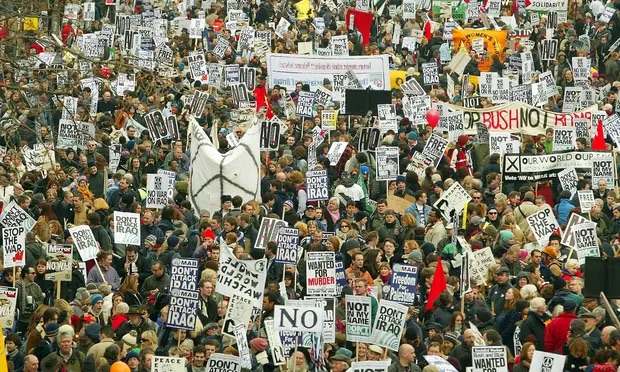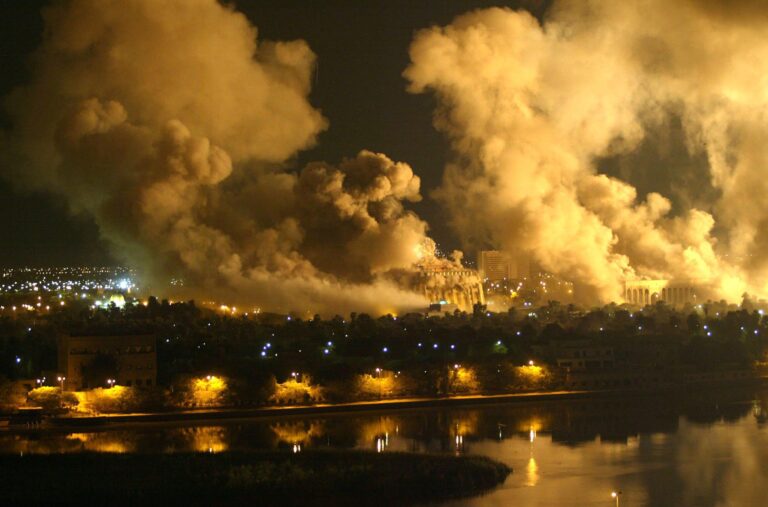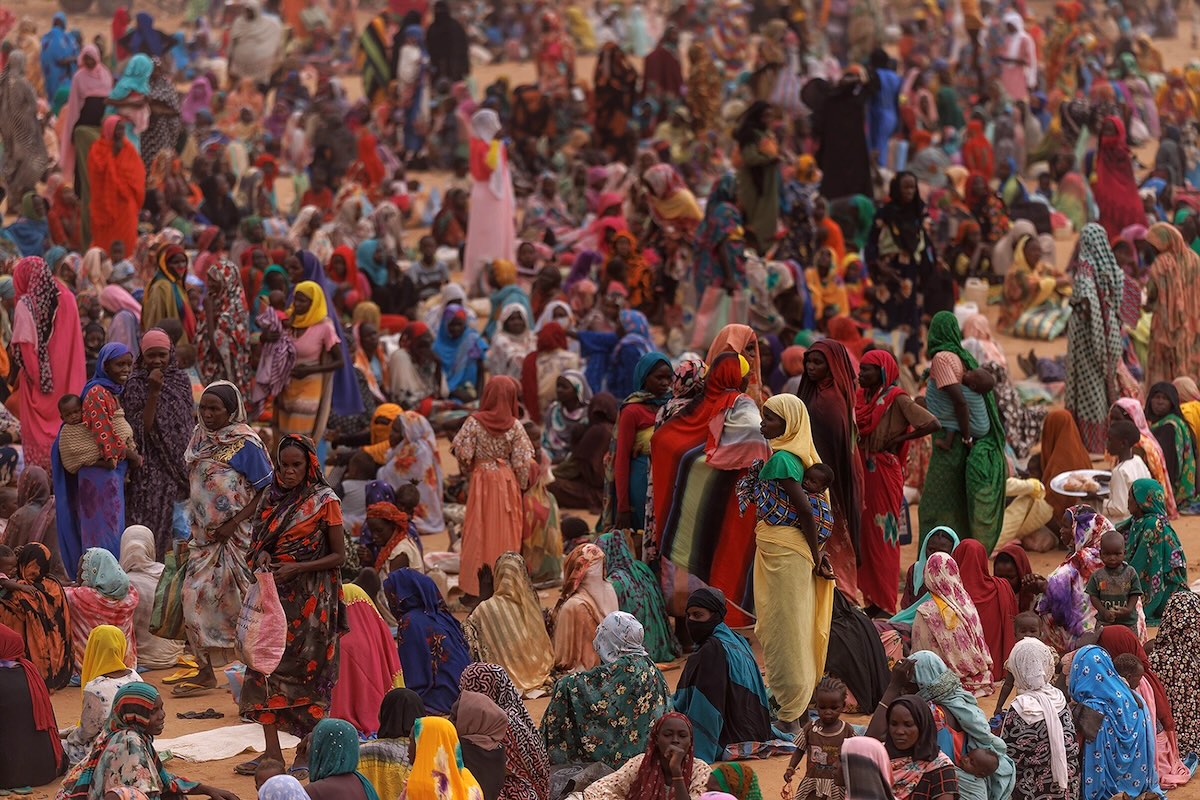“It’s March 19, 2003, the rumbling of Harrier jets ricochets from cloud to cloud and echoes the relentless thrum of vengeful declarations that “Freedom isn’t Free!” In the coming days, terror will rain from the sky upon the people of Iraq, violence will flood the streets of a sovereign nation, and 7,000 miles away US politicians and media will lockstep in their lies to justify it all.”
-About Face: Veterans Against the War
Quantifying what was lost during the 20 years that the US and its allies conducted brutal military operations during the occupation of Iraq may not be possible. Whether you count the number of bombs dropped by the US, estimated at 154,000 between 2001 and 2021, or count those reportedly killed from direct military operations in Iraq, somewhere around 300,000, the numbers are staggering. How many people survived, even after enduring torture and gross humiliation, like those held at Abu Ghraib?

The effects of the US war machine operating in Iraq were not just physical in nature. What of the society, forever altered after decades of occupation? What of the damage caused to the Tigris and Euphrates River systems? The legacy of millions of pounds of toxic waste abandoned by US troops that continue to contaminate soil and water?
Many outlets around the world have covered the notable 20 year mark of the 2003 invasion called Operation Iraqi Freedom. You can read timelines, hear from US veterans here and here, and calculate the economic costs of the war. You can look through photographs of historic moments in the US narrative of the war and find reports of the millions who protested the war around the world.

And as for the men who envisioned, narrated, and executed the rollout of Operation Iraqi Freedom? They have all benefited from their roles as architects of the war.
“The men and women who launched this catastrophic, criminal war have paid no price over the past two decades,” writes Jon Swartz from The Intercept. “On the contrary, they’ve been showered with promotions and cash.”
With all of this information available, what have we learned?
Do we, as a nation, show such disregard for human life to continue to go down the militarism path in perpetuity?
About Face: Veterans Against War, formerly Iraq Veterans Against War, posed an important question for us in their statement marking the anniversary.
“What would it take to collectively release our hearts and minds from the clutches of US militarism?”


